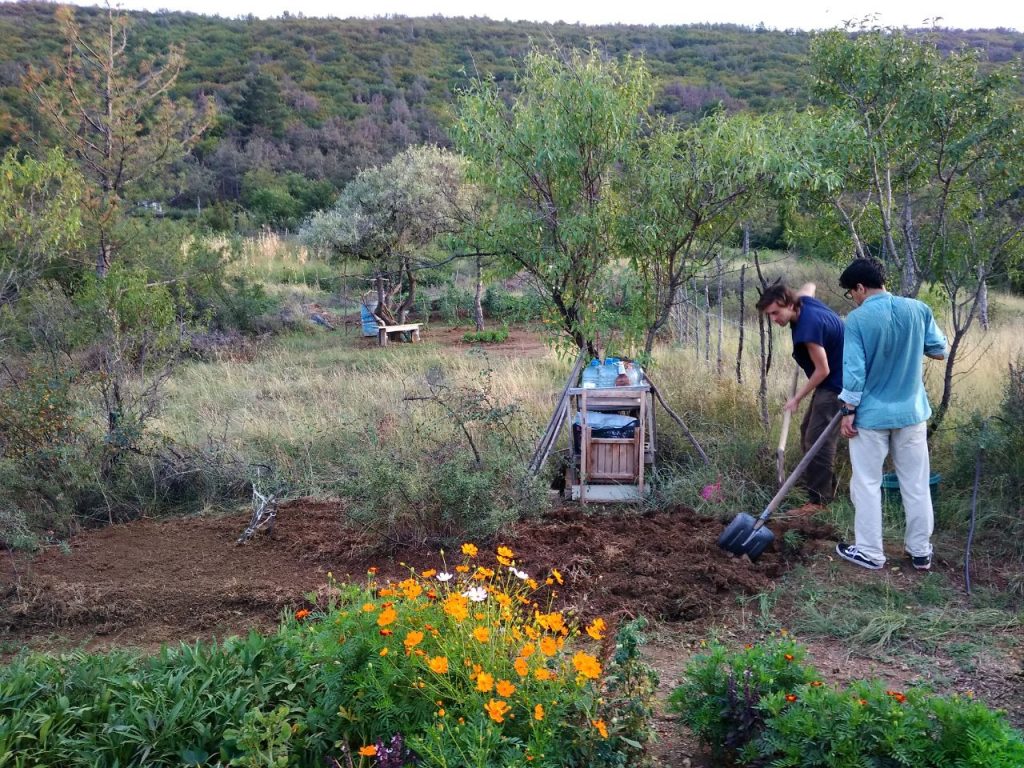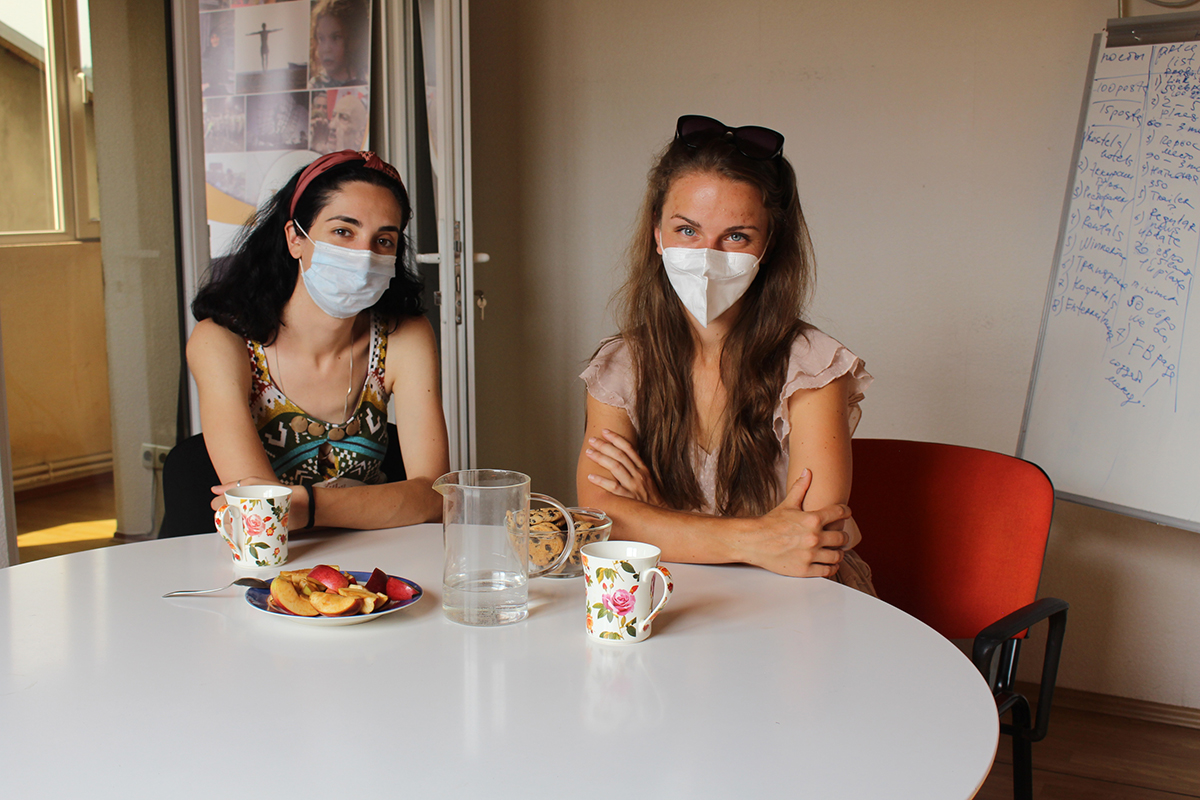Community gardening in Tbilisi
Community gardening is an opportunity for people from the city to have their own vegetables and plants even if they can’´t afford a garden themselves. “It is not a business – it is a social initiative allowing likeminded people to share a green spot in the city. The circular economy – exchanging goods without money – is our goal”, states Salome Popiashvili, the founder of Kokopelli community garden in Tbilisi.
“I wanted to have the rainbow of flavours again”
One way to bring more green space to the city is establishing a community garden – piece of land owned by a group of people, sharing the duties as well as the achievements.
More than a year ago, the second but for now the only community garden in Georgia was established in Tbilisi by young Georgian woman Salome Popiashvili. “I had a huge nostalgia for tasting the herbs and vegetables I remembered from childhood.
It was a rainbow of flavour and I had the passion to still have it in my life”, Popiashvili explains her motivation to start the project. She wants to eat quality and tasty vegetables and, from her point of view, they taste the best, when you grow them yourself.
“The food we get on the markets nowadays is just not the same it was 20 years ago. I think many people still remember the real taste of tomatoes from the garden”.
It was in Berlin, when Salome came across community gardening for the first time. She was there on a Georgian Youth for Europe project, learning more about community gardening.
When she came back to Georgia, she was passionate to start the same concept in Tbilisi. It was a long process, as the group of enthusiasts did not have enough resources to buy a land plot. That is why they decided to ask the municipality to have a free land.
“We asked for a permission to have recreational area in the city. We had to fill many papers, basically write a project, to prove, why we are good for Tbilisi. If you are not good for the city, why would municipality give you a land?”
There are some rules the community has to promise to follow, for example not cutting the trees damaging the environment, but finally, they got the land.

Community garden – for people and other species
The main beneficiary, Popiashvili claims, is the community. People come and work together instead of constantly checking their social media. “It´ is good for mental health and sense of community”, states Popiashvili. It is also physical exercise you don’´t have to pay for, because it i´s not a gym, but real work. She also believes that by planting diverse plants in the garden, they are attracting different species to the city, which she finds important, as the amount of species there is in decline.
At Kokopelli, people plant vegetables as well as flowers and herbs. There are different rules for spring, summer, autumn and winter gardening. “In winter, you can still plant vegetables, you just have to know, which ones. For example now is the time for lettuce and broccoli”, explains Popiashvili.
According to Popiashvili people love the idea of community gardening, but they still don´’t see their place there.
From the first glance, it might seem difficult, but she recons anyone can become a gardener. She herself started gardening from the scratch, she learnt the basics from internet and then started to practice.
“People are often asking me – I don´’t know how to care about plants. My advice to those people is just take few plants that you like – for example tomatoes, basil and cucumber. Search on internet, what do these plants need, what kind of conditions? For example, if your land is dry and you can’t go there every day to water your plants, don’´t plant cucumbers, because they need a lot pf water. But don’´t be afraid and just start – you will make mistakes and it will be painful to see a plant dying at first, but then, you will learn. It´’s trial and error, you know?”, explains Popiashvili.

So far, there are four people having their own plots at the garden. For the next season, Salome can imagine two more enthusiasts joining the community.
“Unfortunately we can’´t have more than six people having their own plots at Kokopelli, as we don’´t have that much space. But I believe I can share the knowledge with others so they can start their own community gardens project in Tbilisi, why not?”, recons Salome. Each person gardening in Kokopeli has his or hers own plot, but they help each other – there is even a week schedule for watering flowers, so that not all of them have to come all the time.
Many other people are also visiting the garden for different kind of events, which the members of Kokopelli organize. It could be picnic or some educational activity, which informs people about environmental issues, such as climate change or waste reduction.
“Kitchen waste instead of plastic waste
There are also rules that need to be followed by everyone of the community. For Salome Popashvili, it is very important that people, who come to Kokopeli, try to avoid plastic. The gardeners are not allowed to use fertilizers and chemicals.
“When you are coming, don’´t bring plastic bottles, or at least take reusable ones. If you plan to eat here, bring your plates and cutlery. Otherwise we have all the tools, so you don’´t have to bring anything special”, says Popiashvili.
A new thing at Kokopelli is the compost pile, where the kitchen leftovers become a useful fertilizer, instead of waste.
“It is a lifting experience, when you have awareness about landfills, how they emit the environment and how it impacts climate change. There is no other place in Tbilisi to bring you kitchen waste and I am very happy for those, who are contacting us, asking if they can bring it to us, because I know they have the awareness”.
Every garden is different
For Salome it i´s important to find a way of gardening, which reflects needs of the locals as well as environment. Community garden in New York will be different from the one in Berlin or Tbilisi.
“The idea is quite new in Tbilisi, people are not well aware of what is a community garden and what it can bring to them. We have to understand the culture and people to see what works best for everyone”.
Different forms of community gardening are known from the past. For example during the Second World War, there were many of them established in the United States to improve people´’s health.
The current community gardening movements are more focused on the psychological benefits.
“You come to Kokopelli and you rest. You are outside your business and the rush of the streets and the city. We are giving people the opportunity to be in touch with the nature, have this peace of mind. When we move our body, the blood flow is good, mental health is good and the vegetables and flowers are a reward at the end”, Salome explains.



















